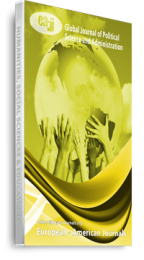This study is a descriptive one. It examines the motives behind electoral malpractice in Nigeria, finds out the factors that aid the act in the study area, and discusses the consequences of electoral malpractice on the country’s sustainable development. It relied on secondary data that were content analysed. The study found that crave for power, attitude of the politicians who see politics as investment, vengeance and preponderance of seeing electoral periods as pay-back times are some of the motives for engaging in electoral malpractice. Additionally, poverty, lack or poor political education, bribery and corruption, and inadequate planning on the part of political parties/candidates are some of the factors responsible for electoral malpractice. The study also found that electoral malpractice slows down development, breeds violence and destroys the image of Nigeria. The study further draws implications of electoral malpractice for the Nigerian state. As ways out of the challenge, there is need for more political education by National Orientation Agency and Independent National Electoral Commission, institution of electoral-courts, and thorough enforcement of the electoral act, making the electoral body truly autonomous and putting of appropriate legislation in place to punish offenders in order to overcome some of the havocs electoral malpractice wrecks in Nigeria.
Keywords: Development, Election, Violence, electoral courts, electoral malpractice

